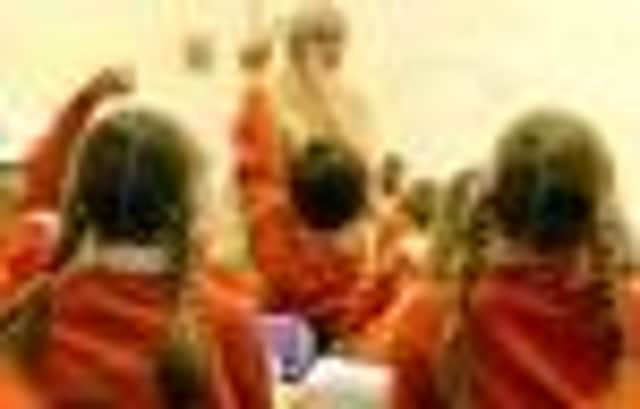Teachers urged to back strike action over pensions


The Educational Institute of Scotland (EIS), which represents 80 per cent of teachers north of the Border, will today launch a consultative ballot on industrial action after failing to make progress during talks with the Scottish Government.
The union claims its members face the prospect of contributing more to their pensions, while receiving less and working longer into their 60s.
Advertisement
Hide AdAdvertisement
Hide AdWhile pension reform is a matter reserved for Westminster, the EIS had hoped the Scottish Government would help broker a different solution north of the Border.
EIS general-secretary Larry Flanagan said: “The EIS remains committed to seeking a resolution through ongoing negotiations with the Scottish Government. However, little progress is being made and the possibility of the talks breaking down without agreement is very real.
“While we continue to hope for a negotiated agreement, we will also be ready to continue the fight for a fair deal by the use of further industrial action if required.
“I would urge all eligible EIS members to use their vote in this important ballot and to vote ‘Yes’ for industrial action to send a strong message to the Scottish Government.”
Mr Flanagan added: “The EIS rejects the possibility that teachers should be forced to work until 68, or even later, in order to access decent pensions.”
Scottish teachers took part in their first national walkout in about 25 years when they joined a strike in November 2011 over pension reform. This latest ballot is purely a consultation exercise, so a second, statutory ballot would be required before any industrial action could be taken.
However, it is a sign of increasing frustration within the profession over the Scottish Government’s inability to negotiate a settlement and comes as Scotland’s schools prepare to introduce new exams as part of the Curriculum for Excellence.
Teachers and lecturers will have until 26 March, when the ballot closes, to use their vote.
Advertisement
Hide AdAdvertisement
Hide AdA Scottish Government spokesman said: We do not think that industrial action is in the best interests of pupils or parents.”
Earlier this year, the body representing Scotland’s headteachers joined in the condemnation of the pension changes, saying they will make it harder for schools to recruit and retain the best leaders.
School Leaders Scotland (SLS), which represents more than 700 heads and deputies in state and private schools, said it had “deep concerns” over the introduction of tiered contributions, which would see its members pay up to an extra £1,600 a year in contributions with no increase in the size of pension they receive.